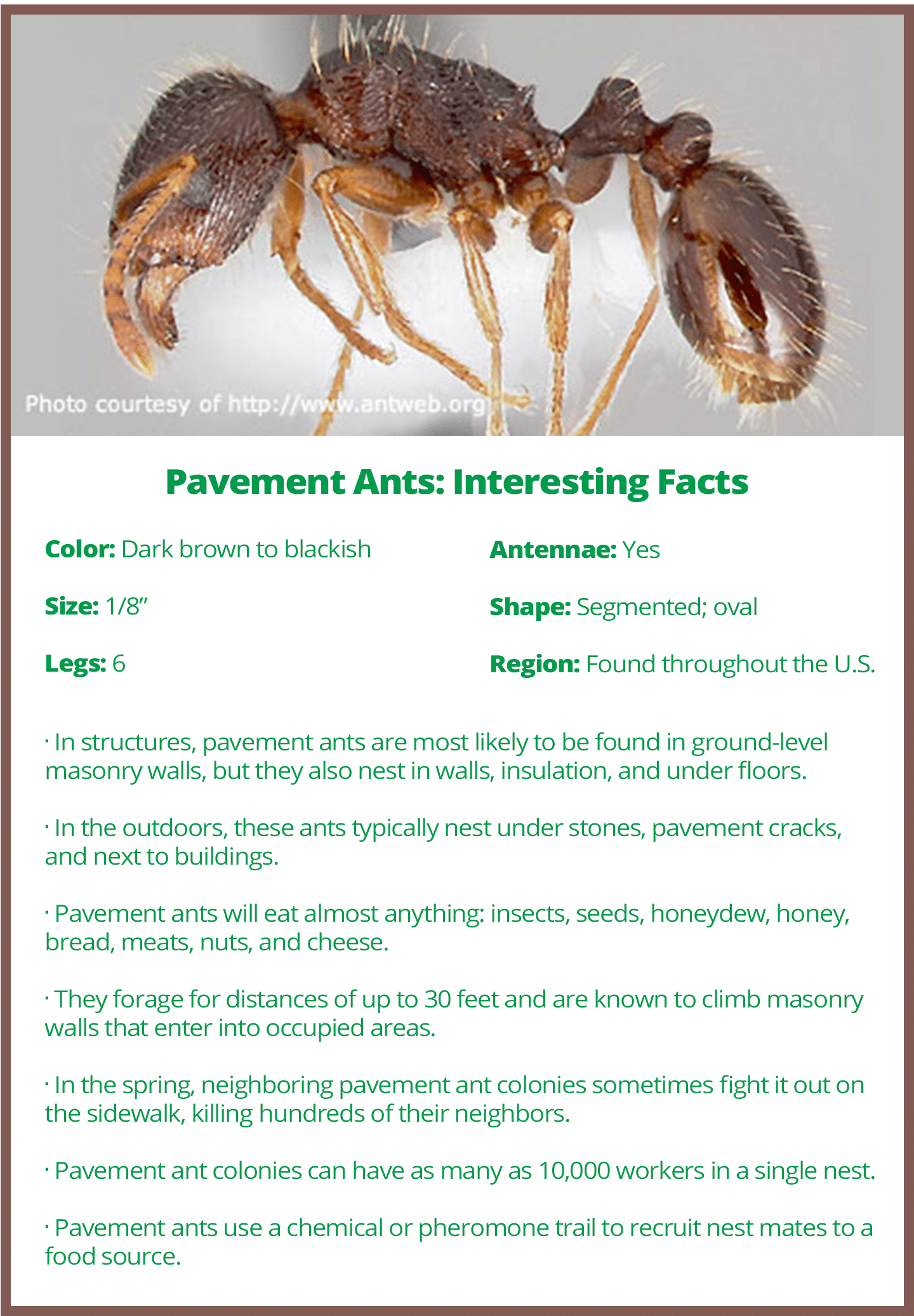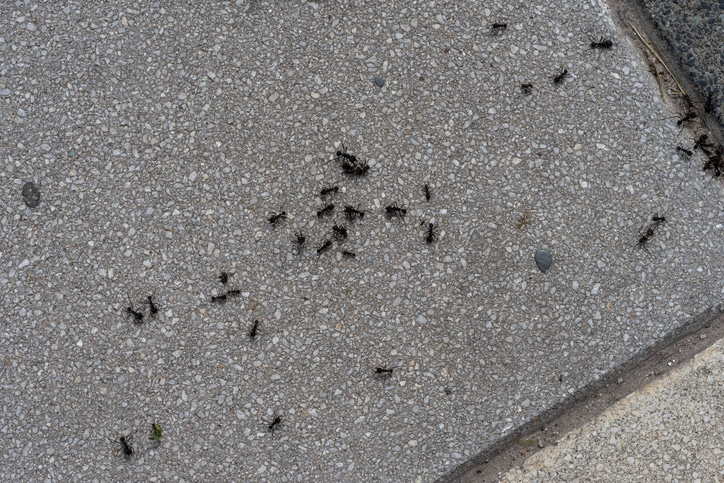When you were a kid, pavement ants were mesmerizing—an entire ant world in the cracks of your driveway. But now that you’re a home or business owner, they are a nuisance and a threat. While they may start in your driveway, they could eventually invade your home or business in search of food and shelter. Keep reading to learn more about these all-too-common New England pests, how to identify a colony, and how to protect your property from a pavement ant infestation.
Pavement Ant Facts
Before we dig into how to prevent pavement ants, let’s review some interesting facts about these common pests. Understanding their behavior is key to establishing an effective prevention strategy. Pavement ants get their name because they make nests in or under cracks in pavement. Unfortunately, these dark brown to black ants can also infest structures. If they decide to establish an indoor colony, you’ll have a problem on your hands.

How to Identify a Pavement Ant Colony
Outdoors, pavement ant colonies are easy to identify by the trademark cone-shaped mound of soil that usually sits on top of a nest. Pavement ants tend to build colonies beneath concrete cracks in driveways or sidewalks. When the ants tunnel into the soil to create space for the colony, the dirt gets pushed up through the top of the nest, creating mounds of sand and soil.
Indoors, pavement ant colonies can be hard to find, as they typically construct their nests under the foundation.
7 Tips to Protect Your Property From Pavement Ants
Keeping pavement ants out of your home or business requires diligence and preventive measures. Here are a few tips to get you started:
- Seal cracks & gaps: Apply silicone caulk or weather stripping to seal potential entry points around doors, windows, and foundations.
- Keep it clean: Regularly clean surfaces, floors, and countertops to remove food crumbs and spills that attract ants. The fact is, ants will leave your home if there is nothing for them to eat. This species is known to prefer sugar and protein—like meats and grease—so be sure to clean up any bacon grease.
- Store food properly: Keep all food in tightly sealed containers, especially sugary and protein-rich items, to prevent access for ants.
- Fix leaks promptly: Repair any plumbing leaks to eliminate moisture. Remember, ants are drawn to humidity and warmth, so eliminating moisture is key.
- Trim shrubs & trees: Look for any landscaping that could act as a bridge for pavement ants to cross into your home and trim it back.
- Remove excess building materials: If you have concrete slabs or bricks piled for that project you keep meaning to get to, keep them away from your house. These could be nesting sites for pavement ants.
- Consider professional pest control: If ant infestations persist despite your best efforts, reach out to a reputable pest control company like Ford's Hometown Services for targeted treatments and long-term prevention strategies.
Tell These Ants to Hit the Pavement —and Keep Going
Getting rid of ants can be challenging. Homemade treatments and over-the-counter solutions can drive them deeper into the walls or foundations. If you think you have a pavement ant infestation, it’s always best to call in the pros. Ford's Hometown Services has more than 80 years of combined experience in pest control, including pavement ant prevention and infestations. Call us today at (774) 418-4908 or get an online quote.


